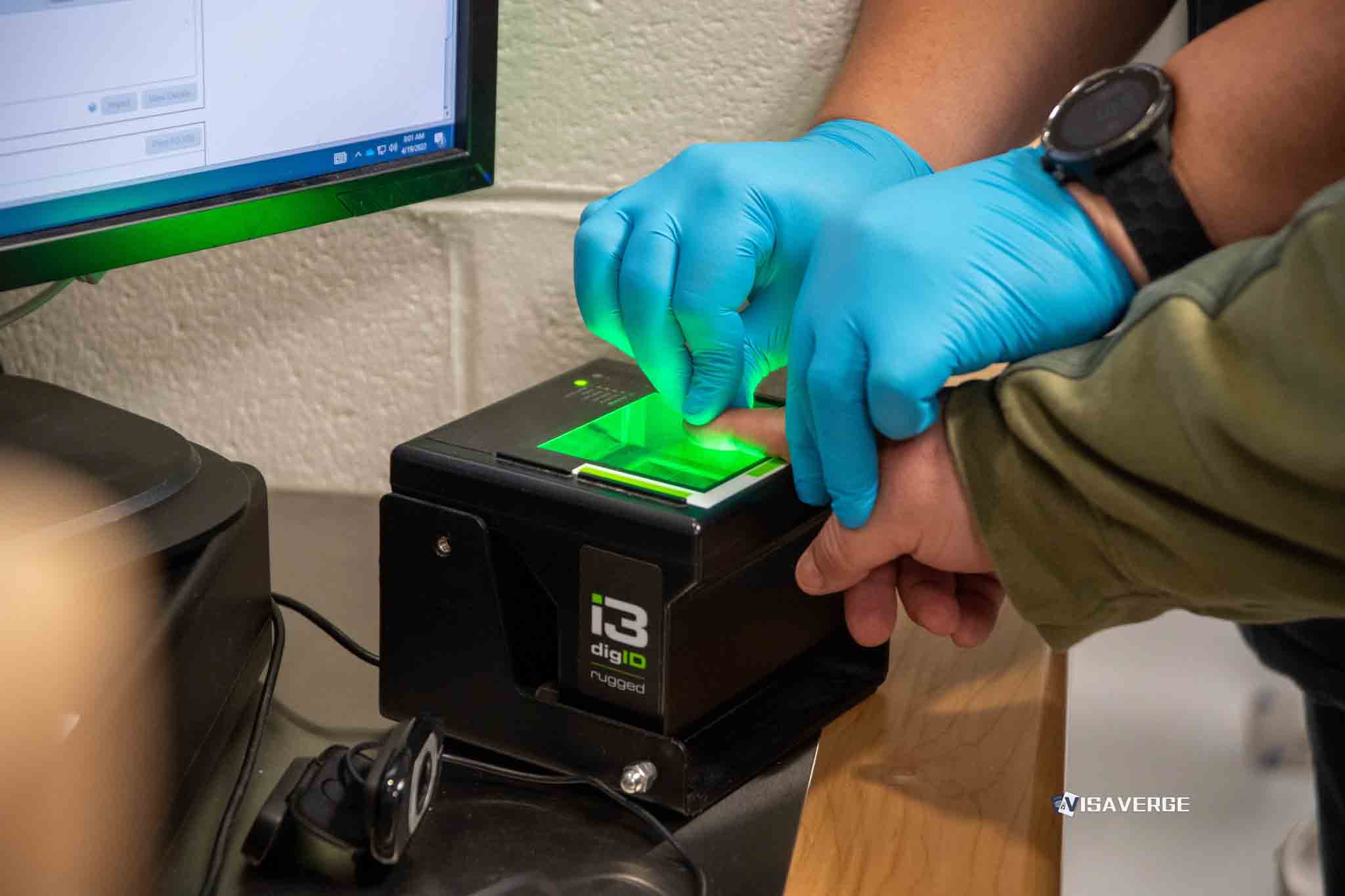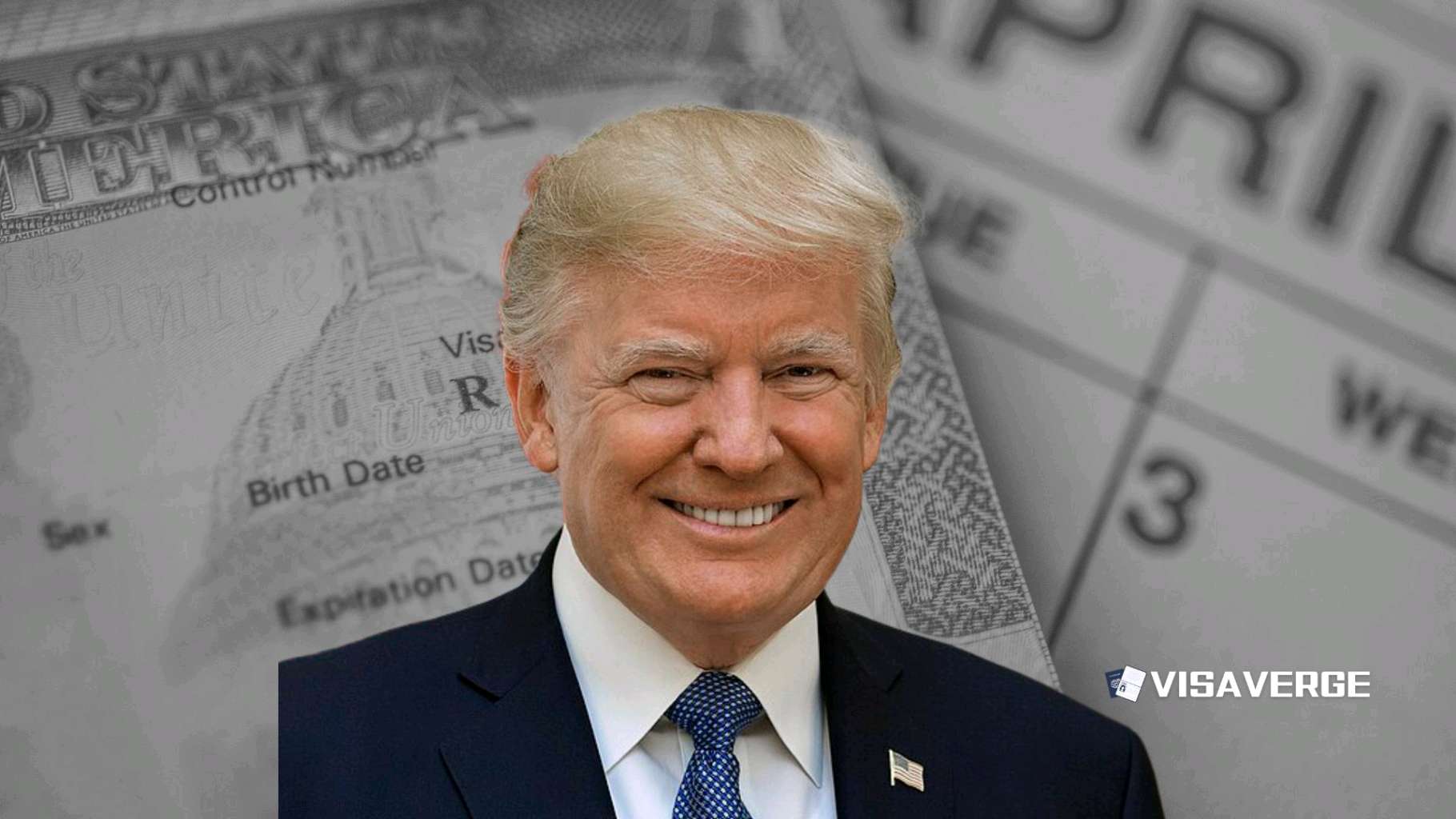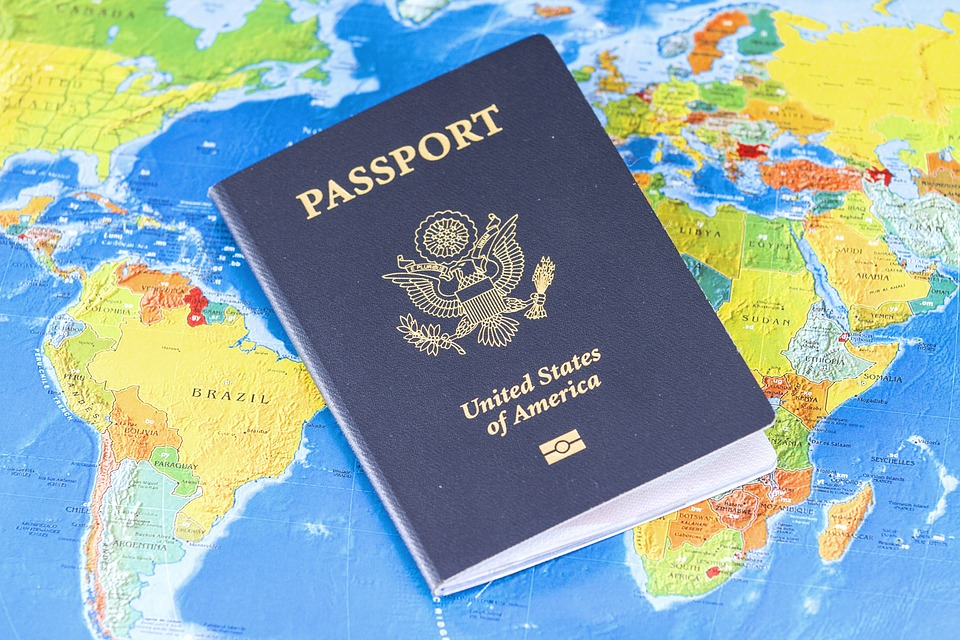(CALIFORNIA) The United States has banned 7,248 drivers from commercial trucking this year for failing English proficiency checks, a sweeping enforcement move that transportation officials say is aimed at road safety but which industry groups and Sikh advocates warn is hitting Indian-origin drivers hardest. U.S. Transportation Secretary Sean Duffy said the out-of-service orders were issued through roadside inspections across the country and mark a sharp escalation after roughly 1,500 such failures were recorded earlier in the year.
“7,248 drivers placed out of service for failing to meet Trump’s English language proficiency standards as of October 2025,” Duffy said. “This is about Donald Trump and his administration making America’s roads SAFE again!”

The rule at the center of the crackdown is 49 CFR 391.11(b)(2), which requires commercial drivers to read and speak English well enough to talk with the public, understand traffic signs, respond to official questions, and complete necessary reports. Federal officials made the English checks mandatory at roadside stops beginning in June 2025, according to government statements and inspection data. Since then, enforcement has surged, with inspectors marking drivers “out of service” on the spot if they cannot pass the English portion of the encounter.
Industry leaders say the effects are most visible among Indian-origin drivers, particularly Sikhs from Punjab and Haryana, who make up a large share of the long-haul workforce in states like California, Texas, and the Midwest. The North American Punjabi Truckers Association estimates that 130,000–150,000 Indian-origin drivers work in the U.S. trucking industry. Sikh advocacy groups say about 90% of Sikh workers in the sector—roughly 135,000–180,000 people—are drivers, and they estimate up to 40% are based in California. Company owners and dispatchers reported routes going uncovered after veteran drivers were sidelined during routine stops, while attorneys fielded calls from families worried about licenses and paychecks.
Truckers and small fleet operators call the push discriminatory and say the government is using language checks as a blunt tool. They argue that while English skills can help in emergencies, many drivers operate safely with limited fluency by relying on GPS, translated signage, and dispatchers who communicate in Punjabi or Hindi. They warned that removing experienced drivers en masse risks delays in deliveries and higher costs for consumers. Sikh advocacy groups protested after the roadside enforcement and related policy steps began, saying the order could have a “discriminatory impact on Sikh truck drivers and create unnecessary barriers to employment for qualified individuals.” They said the focus on accent and fluency does not reliably measure safety on the road and urged federal officials to consult with community leaders and unions before finalizing longer-term standards.
The heightened checks followed a string of fatal crashes involving Indian-origin drivers that drew national attention and pressure from state and federal authorities. In Florida, Harjinder Singh was involved in a crash that killed three people and failed an English examination after the collision, according to official accounts. Authorities allege he entered the U.S. illegally from Mexico before securing driving work. Florida Lt. Gov. Jay Collins later escorted him onto an airplane in Stockton, California, for extradition, alongside immigration agents, in a rare display of direct state involvement that underscored the political stakes around roadway deaths and border enforcement.
In California, regulators came under scrutiny after another high-profile incident involving Jashanpreet Singh, who had been issued a California commercial driver’s license on June 27, 2025, and was involved in a crash that killed three people. Federal audits flagged “significant compliance failures” in California’s licensing process, prompting an internal review by state agencies and calls from lawmakers for tighter vetting of training schools and test protocols. The California case reverberated through the state’s massive freight sector, where Indian-origin drivers, especially Sikhs, have deep networks in warehousing and intermodal routes tied to the ports.
The policy response reached far beyond roadside checks. In late October 2025, the Trump administration suspended all worker visas for commercial truck drivers, halting any new employment visas for foreign drivers.
“Effective immediately we are pausing all issuance of worker visas for commercial truck drivers. The increasing number of foreign drivers operating large tractor-trailer trucks on US roads is endangering American lives and undercutting the livelihoods of American truckers,” said U.S. Secretary of State Marco Rubio.
The State Department directive rippled through recruiting pipelines that had brought in drivers from Canada, India, and parts of Latin America, leaving fleets that depend on cross-border hires scrambling to adjust.
Homeland Security Secretary Kristi Noem defended the sweep and the related immigration measures in forceful terms.
“We don’t want any of these individuals out on our roads. And we don’t want them in our communities. And we especially don’t want them behind the wheel of an 18-wheeler when they can’t speak our language, don’t understand our laws, can’t follow roadway signs, and can’t interact with law enforcement or our citizens.”
Her remarks framed the issue as both a public safety problem and an immigration control priority, a stance welcomed by some policing groups but criticized by civil rights advocates who said language standards are being invoked to target a specific community.
As enforcement broadened, federal agents and local police carried out targeted operations to find unlicensed and undocumented commercial drivers. In Indiana, authorities reported 223 illegal immigrants arrested, including 146 truck drivers, as part of a sweep known as “Operation Midway Blitz.” Officials said many of those arrested had criminal histories and that the majority came from sanctuary jurisdictions in California, Illinois, and New York. The arrests fed a narrative among hardline lawmakers that English proficiency and licensing checks need to be paired with stricter immigration enforcement at weigh stations, ports, and distribution hubs.
For many Indian-origin drivers, especially those from Punjabi and Haryanvi communities, the ban figures are not abstract. Dispatch radios went quiet for some drivers after they were marked “out of service” hundreds of miles from home, leaving them to arrange towing and face potential job loss. Family members in California’s Central Valley described sudden shifts to day labor while they waited for employers to decide whether to reassign them off the road. Drivers who had spent years learning routes and building customer trust now worried a failed exchange with a trooper could erase their career. Industry groups said older drivers who rely on spoken Punjabi at truck stops and during loading often struggled in roadside interviews, even if they had handled English-language paperwork with help from dispatchers for years.
In explaining the surge, federal officials pointed to the statutory language. The 49 CFR 391.11(b)(2) requirement does not test grammar but sets a practical standard: the ability to converse with the public, read road signs, and answer official questions. Enforcement officers on highways began incorporating direct questions in English during inspections; if drivers could not respond adequately, they were ordered off the road until they could meet the standard. The shift to mandatory English checks in June 2025 meant the discretion some inspectors previously used to let minor communication issues slide was replaced by a firm rule, magnifying the number of citations and immediate suspensions.
The government’s messaging has portrayed the crackdown as a response to specific tragedies and systemic vulnerabilities in licensing. Public data points have centered on the two multi-fatality crashes involving Harjinder Singh in Florida and Jashanpreet Singh in California. The latter crash triggered questions about California’s training and exam oversight, with federal auditors highlighting “significant compliance failures” that state officials have been pressed to correct. Nationally, the Transportation Department’s emphasis on English proficiency has dovetailed with a broader White House agenda linking immigration controls to public safety on roads and in workplaces.
Advocacy groups counter that the narrative overlooks the complexity of trucking operations, where teams of dispatchers, shippers, and dock workers often rely on multilingual communication. They say a blanket approach to English proficiency checks does not account for the realities of long-haul logistics and the robust safety records many immigrant drivers maintain. Community leaders say drivers from Punjab and Haryana, who often share routes, accommodations, and on-the-road support, are being painted with a broad brush due to a few high-profile cases. They have called for alternative compliance measures, such as standardized language support tools or staged remediation allowing drivers to continue working under supervised conditions while they build conversational English.
The suspension of worker visas for truck drivers has added a new layer of uncertainty. Companies that had been counting on foreign hires to address driver shortages now face a closed pipeline, compounding delays caused by sidelined workers. Recruiters in California, Texas, and the Midwest report paused contracts and rescinded offers. The State Department’s halt, announced by Rubio, has left thousands of potential applicants in limbo and prompted some carriers to shift hiring efforts to warehouse roles or to expand training for U.S.-based candidates. Industry associations warn the timing, heading into peak shipping periods, could strain supply chains already stretched by equipment shortages and tight delivery windows.
Inside trucking communities, the mood is anxious. Families weigh whether to invest in intensive English courses and retesting options that may or may not return drivers to the road. Freight brokers have begun flagging shippers about possible delays where routes lean heavily on California-based Indian-origin drivers, particularly on produce runs and port drayage. Some drivers who passed English proficiency checks in previous years were surprised to be stopped again, leading to confusion about what satisfies the rule. Attorneys advise clients to document their interactions and seek clarity from employers and state licensing offices on any new in-cab language materials or standard operating procedures.
Even among supporters of tougher enforcement, there are calls for better communication and consistent standards across states. Carriers say that a driver who clears an inspection in Arizona might be sidelined in Nevada for similar responses, creating uncertainty that is hard to plan around. Training schools serving Punjabi- and Hindi-speaking students have started adding conversational English drills focused on highway scenarios—road sign vocabulary, weigh station procedures, and officer interactions—in hopes of reducing the risk of failed stops. But they say such changes take time to show results for the thousands entering the field each year.
The numbers underscore how fast the landscape has shifted. Year to date, 7,248 drivers have been taken off the road for English-related failures, according to Duffy, compared with about 1,500 earlier in the year before roadside English checks became standard nationwide. For immigrant-heavy corridors like California’s Central Valley and the I-5 spine north to Oregon, that has meant sudden shortages of drivers familiar with seasonal loads and specialized routes. Shippers are adjusting by spreading freight among more carriers and offering bonuses to teams that can guarantee English-proficient drivers, pushing up costs.
What began as a safety push after a pair of deadly crashes has broadened into a test of how language, licensing, and immigration policy intersect in a vital sector of the economy. The administration’s defenders say the steps—mandatory English proficiency checks, stricter licensing oversight, and the visa pause—are necessary to prevent more deaths and protect U.S. jobs. Its critics see an approach that singles out a community central to the industry’s workforce and risks sidelining safe, experienced drivers who have built their lives around long-haul work. With the roadside rules entrenched since June 2025 and the visa pause taking effect in October 2025, the consequences are already visible in dispatch schedules, warehouse docks, and family budgets across trucking hubs.
For now, drivers and companies are adjusting to a new normal in which language is a make-or-break factor at every stop. Whether the enforcement wave will taper as more drivers prepare for English proficiency checks, or whether additional measures follow, may depend on what happens next on American roads—and whether the next major crash fuels an even tougher response.
This Article in a Nutshell
Federal roadside English proficiency checks made mandatory in June 2025 resulted in 7,248 commercial drivers being placed out of service after failures, up from roughly 1,500 earlier. The enforcement, grounded in 49 CFR 391.11(b)(2), followed fatal crashes involving Indian-origin drivers and has most visibly affected Punjabi and Haryanvi communities concentrated in California, Texas and the Midwest. Industry leaders, Sikh advocates and carriers warn of discrimination, labor shortages and supply-chain disruptions. In October 2025 the administration paused worker visas for truck drivers, tightening the labor pipeline while states review licensing compliance.













